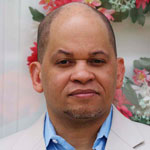Billie Otto has never shied away from a challenge, a character trait that dates back to her undergraduate days at Western Washington University and that is still paying dividends today as the senior vice president and CIO of the aptly named blue-collar staffing firm, TrueBlue Inc. Whether she’s taking the lead on significant and transformative projects at TrueBlue or gaining governance experience on nonprofit and higher-education boards, Otto tells Profile how she always positions herself to effect change.
How did you find your way into the staffing industry?
Otto: It’s fairly simple. I was recruited and the recruitment came from a connection I had on a professional board that I served on. Unbeknownst to me, one of my peers on that board had been hired as the CFO of TrueBlue, which was at that time Labor Ready, and when he started as the CFO, he had the recruiter find me.
And what is it that you find rewarding about this line of work?
Otto: We are in the blue-collar portion of the staffing industry, and I very much enjoy it, the matching of our customer’s needs with the skills and attributes of the blue-collar world. There’s so much that can be said about manual labor: it runs the nation, and it’s rewarding connecting clients’ needs to the skills and capacity of that workforce. In addition, what I’ve accomplished is rewarding. I’ve helped put TrueBlue on a growth path that consolidates sale systems to simplify recruiting activities and to integrate disconnected customer brands to enable one experience.
What is it about you that makes you good at the systems and information-technology side of the job?
Otto: I understand business concepts and the application of technology in a business context. Technology itself doesn’t excite me—what does is harvesting the power of technology in furthering a business strategy. Done right, it’s natural and in line with the work objective of the person using it, and the value it creates is obvious. I ask, where does this piece of tech fit? What culture has to change? What jobs would be impacted by it? I’m naturally curious and enjoy figuring out where things fit in and what it would take to drive success.
Can you speak a bit about leadership? How do you approach being in a C-level position?
Otto: What I ultimately love about the job is the ability to effect change through and with terrific people. At the C-suite level, you’re in a great position to inform, influence, and execute strategy—particularly if you have a level of humility about it and can get the right people collaborating. If you know what pieces have to come together, you’re in the perfect position to lead teams to an outcome. There’s an interesting convergence in any C-level executive’s career. Early in your career, you earn your stripes operating at a functional level.
It sounds like we’re talking about information sharing across disciplines and functions. Is that what appeals to you about board work, why you would enjoy working more in that capacity?
Otto: I think board experience is complimentary to my executive role. A board member needs to synthesize information quickly, put it in context, assess risk, and challenge in their oversight role. A board seat gives me an enhanced perspective when I engage with our board as a member of executive management. All organizations exist for a reason and face challenges and opportunities unique to that purpose and environment. If you earn your stripes in your professional career and
become a student of broad business strategy in a targeted industry, you can become a great leadership and governance asset to a wide range of large and complex companies. It is my goal to be both an excellent executive and board member.
Talk about TrueBlue’s strategic shift that brings five brands into one. Why is this necessary and how is it going?
Otto: TrueBlue is a leader in blue-collar staffing with more than a billion dollars in revenue and serves approximately 175,000 customers in a broad range of industries. With our five brands, we accomplish our goal of serving our customers with a broad range of blue-collar jobs—from general laborers to a very specific type of aviation mechanic. A consequence of our success is an organization that isn’t as easy to do business with as we’d like. Our journey to becoming one is a reflection of our deep resolve to be customer-focused and facing that head on.
What makes your work with Western Washington University so rewarding?
Otto: I served on the College of Business and Economics Advisory Board. WWU understands that to attract the best students and offer the best experience and graduation opportunities, it must continually offer curriculum that is relevant in the marketplace. It is rewarding to provide employer and market insight to that curriculum, and it’s wonderfully rewarding to interact with the students who aspire to make a difference in their careers.

